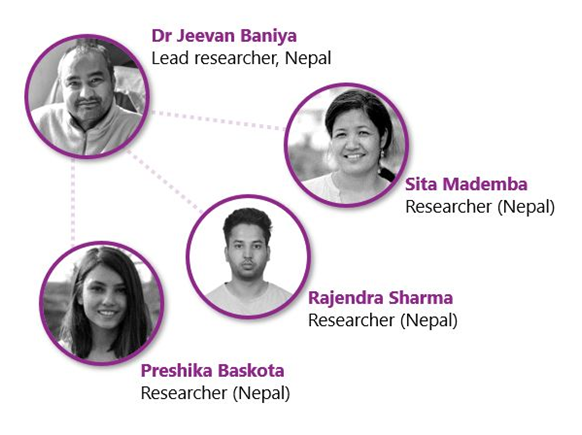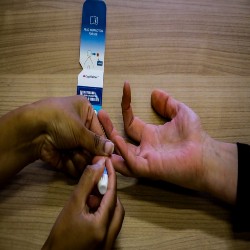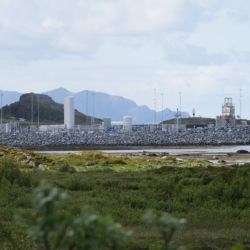-
Study
-
Quick Links
- Open Days & Events
- Real-World Learning
- Unlock Your Potential
- Tuition Fees, Funding & Scholarships
- Real World Learning
-
Undergraduate
- Application Guides
- UCAS Exhibitions
- Extended Degrees
- School & College Outreach
- Information for Parents
-
Postgraduate
- Application Guide
- Postgraduate Research Degrees
- Flexible Learning
- Change Direction
- Register your Interest
-
Student Life
- Students' Union
- The Hub - Student Blog
- Accommodation
- Northumbria Sport
- Support for Students
-
Learning Experience
- Real-World Learning
- Research-enriched learning
- Graduate Futures
- The Business Clinic
- Study Abroad
-
-
International
International
Northumbria’s global footprint touches every continent across the world, through our global partnerships across 17 institutions in 10 countries, to our 277,000 strong alumni community and 150 recruitment partners – we prepare our students for the challenges of tomorrow. Discover more about how to join Northumbria’s global family or our partnerships.
View our Global Footprint-
Quick Links
- Course Search
- Undergraduate Study
- Postgraduate Study
- Information for Parents
- London Campus
- Northumbria Pathway
- Cost of Living
- Sign up for Information
-
International Students
- Information for International Students
- Northumbria and your Country
- International Events
- Application Guide
- Entry Requirements and Education Country Agents
- Global Offices and Regional Teams
- English Requirements
- English Language Centre
- International student support
- Cost of Living
-
International Fees and Funding
- International Undergraduate Fees
- International Undergraduate Funding
- International Masters Fees
- International Masters Funding
- International Postgraduate Research Fees
- International Postgraduate Research Funding
- Useful Financial Information
-
International Partners
- Agent and Representatives Network
- Global Partnerships
- Global Community
-
International Mobility
- Study Abroad
- Information for Incoming Exchange Students
-
-
Business
Business
The world is changing faster than ever before. The future is there to be won by organisations who find ways to turn today's possibilities into tomorrows competitive edge. In a connected world, collaboration can be the key to success.
More on our Business Services-
Business Quick Links
- Contact Us
- Business Events
- Research and Consultancy
- Education and Training
- Workforce Development Courses
- Join our mailing list
-
Education and Training
- Higher and Degree Apprenticeships
- Continuing Professional Development
- Apprenticeship Fees & Funding
- Apprenticeship FAQs
- How to Develop an Apprentice
- Apprenticeship Vacancies
- Enquire Now
-
Research and Consultancy
- Space
- Energy
- AI Futures
- CHASE: Centre for Health and Social Equity
- NESST
-
-
Research
Research
Northumbria is a research-rich, business-focused, professional university with a global reputation for academic quality. We conduct ground-breaking research that is responsive to the science & technology, health & well being, economic and social and arts & cultural needs for the communities
Discover more about our Research-
Quick Links
- Research Peaks of Excellence
- Academic Departments
- Research Staff
- Postgraduate Research Studentships
- Research Events
-
Research at Northumbria
- Interdisciplinary Research Themes
- Research Impact
- REF
- Partners and Collaborators
-
Support for Researchers
- Research and Innovation Services Staff
- Researcher Development and Training
- Ethics, Integrity, and Trusted Research
- University Library
- Vice Chancellors Fellows
-
Research Degrees
- Postgraduate Research Overview
- Doctoral Training Partnerships and Centres
- Academic Departments
-
Research Culture
- Research Culture
- Research Culture Action Plan
- Concordats and Commitments
-
-
About Us
-
About Northumbria
- Our Strategy
- Our Staff
- Our Schools
- Place and Partnerships
- Leadership & Governance
- University Services
- Northumbria History
- Contact us
- Online Shop
-
-
Alumni
Alumni
Northumbria University is renowned for the calibre of its business-ready graduates. Our alumni network has over 253,000 graduates based in 178 countries worldwide in a range of sectors, our alumni are making a real impact on the world.
Our Alumni - Work For Us
Below you can find information connected to the case
study carried out in Nepal. Read our full case study report below, as well as the Q&A with the in-country researchers.
Nepal Case Study Report: You can read and download the Nepal Case Study Report here.
To cite this report: Baillie Smith, M., Jenkins, K., Baniya, J., Baskota, P., Mademba, S., Sharma, R., Boudewijn, I., Fadel, B. & Gibby, P. (2022). Volunteering Together: Blending Knowledge and Skills for Development, VSO Nepal Case Study Report. Northumbria University/VSO.
Questions & Answers with the In-Country Research Team at Social Science Baha (SSB)

Tell us a bit about the research team and where you work?
The research team includes two research associates, one senior research associate and the Assistant Director at Social Science Baha (SSB), a think tank based in Kathmandu Nepal. They are Preshika Baskota, Rajendra Sharma, Sita Mademba, and Dr Jeevan Baniya respectively.
What did you do as part of the VSO Volunteering Together project?
Preshika Baskota, Rajendra Sharma, Sita Mademba: We have been involved as study team members in the VSO Volunteering Together project. Alongside the SSB Assistant Director and the UK-based Northumbria University team, we have been involved in the case study activities in Nepal. We have participated in orientation and training workshops with the wider team in which we discussed the overall project nature and volunteer modalities in all three study districts (Sarlahi, Siraha and Surkhet). The team also had productive discussions with VSO Nepal’s representative to get the status of VSO’s projects in the respective districts. Subsequently, meetings were held to discuss the research tools, including the interview questions and workshop plans. In the meetings, we prepared for fieldwork including all logistics preparations. The team of three researchers conducted the field study in December 2021 - January 2022. We followed all ethical standards when managing the data, including audio recordings, field photographs, demographic forms etc. With the completion of fieldwork, we also prepared reflection notes to share with the wider team in the writing-up stage of the research.
Dr Jeevan Baniya: I contributed to designing and finalisation of research tools, participated in discussions and trainings led by the UK-based Northumbria team and also provided in-house training to the three researchers, provided guidance/supervision to the research throughout the fieldwork and notes preparation process, coordinated and have been closely working together with the UK-based team in preparing reports.
What were the most interesting things that the research team found on the VSO research project?
The most interesting part of the VSO research project was the research topic ‘blended volunteering’ in itself. It was interesting to identify how different combinations of volunteers would work and what their experiences and contribution would be. Similarly, we found the data collection tools and participatory techniques, particularly the design of the workshop, very interesting. The four sessions of the workshop, including participatory mapping, short interactive discussion, focus group discussion and scenario building were quite tailored to achieve the objective of the study. Each activity of the workshop was directly or indirectly inter-related and had aimed to creatively locate who had worked together, in what activities, and how. It was much interesting to understand the distinct contributions that volunteers, partners, and primary actors made at an individual level, as well in the community level. In terms of the activities, the impacts of the particular VSO projects strenghtening capacities of 'Little Sisters' were impressive and worthy of scaling up.
Are there connections between what you found out as part of the VSO Volunteering Together project, and the other research that you do?
Yes, there are connections between the VSO Volunteering Together project and the other research activities that we are involved in as part of the SSB research work. Some of them include procedures that we followed such as pre-planning, preparation and discussion of data collection checklists, carrying out field activities and writing reflection notes etc. The qualitative research design and tools were also similar to what we have utilised in other related research, while training and orientation process also was somewhat common. For some of us, the use of participatory methods, such as mapping was common, while it was also new for others in the team. The methodology of combining a focus group discussion with participatory mapping was innovative and it was interesting to see how the different methods were interconnected to achieve the aims of the study.
What should future research on volunteering explore?
Future research on volunteering could further explore the perceptions of different types of volunteers about the project, how duration of engagement in projects and incentives shape their perceptions and impacts in short and long term. Moreover, it would be interesting to further understand whether and how the knowledge and skills the volunteers have acquired through their experiences of blended volunteering have been utilised after they have left the placement; how socio-economic values and norms impact volunteering, and how the projects can be informed by the needs and participation of local communities and volunteers in different areas of the country.
Latest News and Features

Royal Honour as leading researcher awarded Polar Medal
Professor John Woodward has been awarded The Polar Medal in recognition of his outstanding…

Northumbria University leads pioneering research to tackle hidden lead exposure in children
Pioneering research launches in Leeds to test new approach to assessing the risk to children…

International students at Northumbria embark on FA Cup dream
A team of international college students studying at Northumbria University could soon find…

Northumbria expands results day support for students
Northumbria University is expanding and enhancing the support it provides to students receiving…

Supporting the ethical development of UK spaceports
A Northumbria University academic is helping to ensure the UK’s ambitions to build a thriving…

Research reveals Arctic region was permafrost-free when global temperatures were 4.5˚C higher than today
Scientists have found evidence that the Asian continent was free of permafrost all the way…

Northumbria wins recognition for expanding access to higher education
Northumbria University has been named Higher Education Institution of the Year at a prestigious…

Satellites observe glacier committing “ice piracy”
A glacier in Antarctica is committing “ice piracy” – stealing ice from a neighbour – in a phenomenon…
